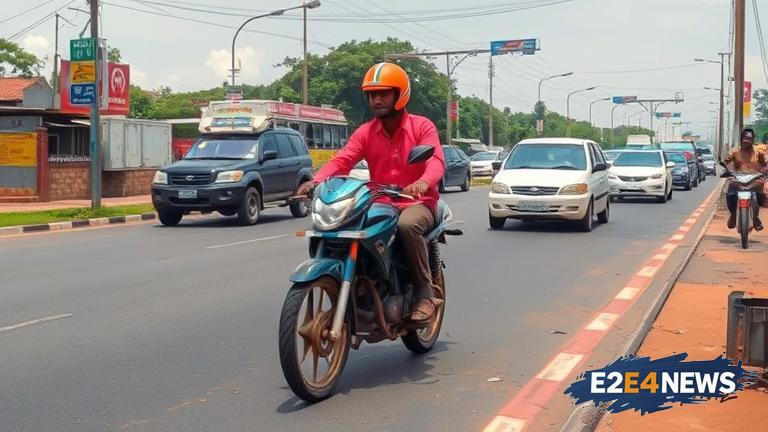Ghana is facing a road safety crisis, with motorcyclists and pedestrians being the most affected. According to a recent report, these two groups of road users are more likely to be involved in fatal accidents. The report highlights the need for urgent attention to be paid to road safety in the country. Motorcyclists, in particular, are at risk due to the lack of proper training and the use of faulty vehicles. Pedestrians, on the other hand, are often victims of reckless driving and poor road infrastructure. The report also notes that the majority of road crashes occur on highways and major roads, where speed limits are often ignored. The Ghanaian government has been urged to take immediate action to address the issue, including the implementation of stricter traffic laws and the provision of better road infrastructure. Additionally, there is a need for public education campaigns to raise awareness about road safety and the importance of responsible driving. The report also recommends that motorcyclists and pedestrians take extra precautions to protect themselves, such as wearing helmets and using designated crossing points. Furthermore, the government should consider investing in traffic management systems, such as surveillance cameras and speed cameras, to monitor and enforce traffic laws. The private sector also has a role to play in promoting road safety, by providing training and resources for drivers and motorcyclists. The report concludes that a multi-faceted approach is needed to tackle the road safety crisis in Ghana, involving government, private sector, and individual efforts. The consequences of inaction will be devastating, with more lives lost and families affected. It is imperative that something is done now to prevent further tragedies. The report’s findings are a wake-up call for the government and other stakeholders to take road safety seriously. The time for action is now, and it requires a collective effort to make Ghana’s roads safer for all users. The report’s recommendations should be taken on board, and a comprehensive plan should be put in place to address the issue. This includes improving road infrastructure, enforcing traffic laws, and providing public education campaigns. The government should also consider partnering with international organizations to access expertise and resources. By working together, it is possible to reduce the number of road crashes and make Ghana’s roads safer for everyone. The report is a timely reminder of the importance of road safety, and it is hoped that it will prompt meaningful action to address the issue. In conclusion, the road safety crisis in Ghana requires urgent attention, and it is imperative that all stakeholders work together to find a solution. The government, private sector, and individuals all have a role to play in promoting road safety and reducing the number of fatal accidents. By taking a comprehensive and multi-faceted approach, it is possible to make Ghana’s roads safer and prevent further tragedies.
